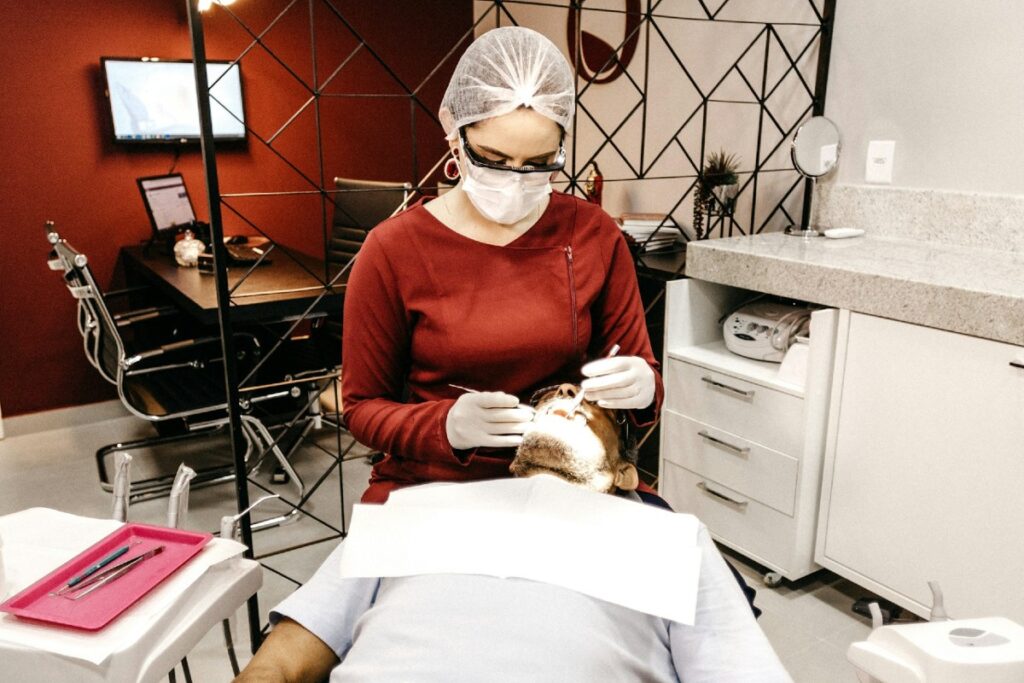
By Rob Goren and Dr. Joseph Dill | For far too long, South Carolina has ranked among America’s least healthy states. Moving forward, it is critical leaders come together to find solutions that place us on a path to a healthier future.
That’s why we’re encouraged to see that State Senator Tom Davis introduced S. 855, a bill creating a study committee to review the health care market in South Carolina, including regulations, practices, access to care, and more. While we’re pleased the bill calls for an oral health leader on the study committee’s non-voting advisory board, we urge the inclusion of oral health care at every phase of this review to improve both the oral and overall health of all South Carolinians.
Oral health is critical to overall health, and polling shows 91 percent of South Carolinians agree. Poor oral health can be an indicator of several chronic diseases, including diabetes and heart disease, which is why its inclusion throughout the committee’s study is so essential. In fact, we recently convened several of South Carolina’s most experienced health care experts to discuss opportunities to collaborate on some of the state’s most significant health care challenges. During our discussion, a consistent theme arose: The lack of access to oral health care, and its impact on overall health.
A large majority of counties in South Carolina are designated as dental health professional shortage areas, making it even harder for those in rural communities to seek and access care. It is becoming increasingly challenging to recruit and retain rural health providers, especially those able to identify and treat oral health issues. As the study committee has the potential to increase the number of health care professionals practicing in the state, if we’re to improve the overall health of all South Carolinians, oral health experts must be included in all phases of the study committee’s work.
Additionally, if we’re to expand access to care, we need to meet patients where they are – and patients in rural and underserved communities often live far from dental and primary care practices, preventing them from easily managing their oral and overall health. That’s why we believe the expansion of telehealth, including teledentistry, is a critical component in supporting rural health care. We must ensure South Carolina is evolving its telehealth and broadband infrastructure to better serve hard-to-reach communities and to enhance care access – something the creation of this study committee will help facilitate.
Further, to advance whole-person health, medical and dental professionals must establish effective communication channels to promote information sharing and collaboration. Since poor oral health can increase the risk of chronic diseases, and inversely, chronic diseases can result in oral health complications, it is critical that physicians and dentists collectively identify oral and systemic health conditions in order to develop comprehensive care plans.
Research sponsored by the Delta Dental Institute found that interprofessional communication through medical-dental integration enhances the patient experience, advances patient-centered care, and increases positive health outcomes. The advancement of a bill like S. 855 could make this process more seamless for South Carolinians, as the study committee aims to eliminate rigid requirements for engagement between different health professions.
As this bill moves through the state legislature, we must ensure that oral health, which often goes unrecognized in broader health programs, is included as a core part of the study committee’s work. As a trusted partner working to improve care outcomes for all, we believe this legislation’s passing, and the resulting study committee, will be an important step in elevating the importance of oral and overall health across The Palmetto State.
Rob Goren is president and CEO of Delta Dental of South Carolina. Dr. Joseph Dill is the head of dental science at the Delta Dental Institute in Chicago.


